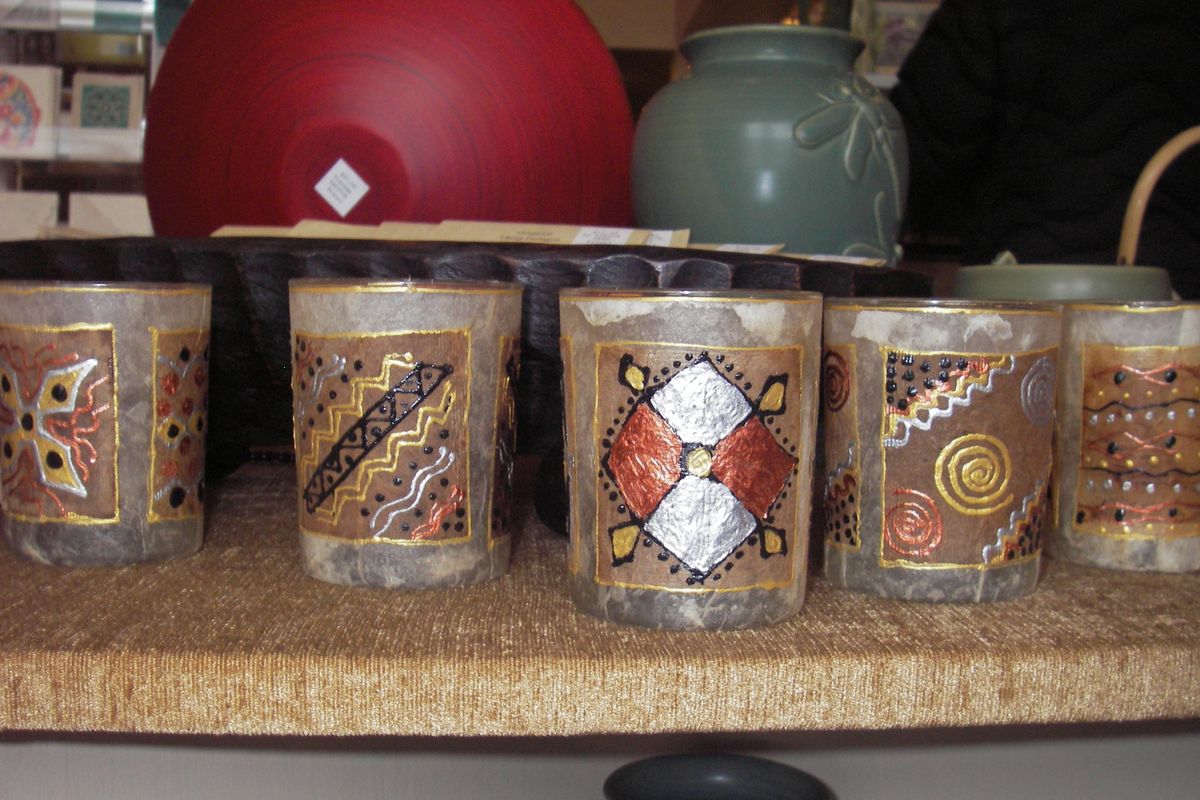Local businesses making plans for Fair Trade Day
Spokane area event with global focus set for May 9

At Kizuri, a downtown Spokane shop specializing in local, earth-friendly and fair trade goods, owner Kim Harmson knows the story behind every item in her store.
“Her grandmother was a soapmaker in Italy,” she says, gesturing toward a stack of thick bars made of olive oil, herbs, berries, flowers, nuts and other natural ingredients, with names like, “Peace & Patchouli, “Wasabi” and “Morning Mint.”
The creator of Mountain Madness Soap Company moved from Alaska to Coeur d’Alene, explains Harmson. She’s a soap artist and a mom who once majored in pre-law.
In another corner, Harmson points to felt potholders, handwoven by women in Nepal. These artisans started out as a group of 90 workers, and their cooperative has since grown to 1,200.
“They’re now able to send their children to school, obtain healthcare and have a place of respect in their communities,” she said.
At the shop’s center is a table lined with tea light candle holders and glass coasters, each adorned with recycled tea bags painstakingly painted by impoverished but resourceful artists living in shacks outside of Cape Town, South Africa, who came up with Original T-Bag Designs.
Through each item – from indigenous art and handcrafted pottery to wooden toys, handmade jewelry, coffee, tea and chocolates – Harmson feels a connection to the artisans, the farmers and the people who created these gifts.
“This work is based on social justice and respect – for humanity and our planet,” she says. “It’s really about relationships and thinking of ourselves as a global community.”
Kizuri, which means “good” in Swahili, is among a dozen small local businesses that are part of the fair trade movement – a system of exchange that ensures that products are not only produced ethically, but also seeks to create equity and partnership while contributing to the development of communities around the globe.
Fair trade aspires to alleviate poverty by improving conditions of marginalized workers and producers. It ensures rights of children, respects cultural identity and cultivates environmental stewardship, according to the Fair Trade Federation.
Harmson and others say fair trade works as a business model because it cut out the middlemen and creates a closer connection between the buyer and the artisans and farmers who grew or created the product or food. That means producers receive a fair compensation for their efforts.
For years, fair trade was considered a niche market but has experienced tremendous growth in the last decade. It traces its roots to the 1940s, when several North American churches established programs that helped poor communities in other parts of the world by selling their handicrafts to Americans, Canadians and Europeans.
One of the most notable advocates at the time was Edna Ruth Byler, a volunteer for Mennonite Central Committee who befriended women in Puerto Rico. The women created lace, which Byler brought to the United States to sell for them. It was the beginning of an organization known as Ten Thousand Villages, which established a shop in 1958 and is now is the largest fair trade retailer in North America.
In the Inland Northwest, pioneers of fair trade include Denise Attwood and Ric Conner of Ganesh Himal Trading, a Spokane-based business that has contracted with Tibetan artisans and refugees since 1984.
People also learned about fair trade through Global Folk Art — a Spokane store that Attwood helped start in the early 1990s but closed last year – plus the efforts of First Presbyterian Church in downtown Spokane. For the last two decades, the church has hosted the annual Jubilee International Marketplace, which features fair trade crafts and alternative gifs.
In Spokane and North Idaho, demand for fair trade products has grown. Despite the recession and the fact that its grand opening last year happened right after the stock market’s plunge, Kizuri continues to draw shoppers.
“People are becoming more conscious about how they spend their money,” says Harmson. “They want things that are functional and of good quality.”
Those are exactly the items at Kizuri – from sturdy recycled coiled paper bowls created by artisans in Vietnam and the practical Sweep Dreams brooms from Thailand to handicrafts distributed by fair trade wholesalers like Ganesh Himal, Moonflower Enterprises, ConoSur and Singing Shaman Traders.
As people become more aware of the many connections between the Inland Northwest and other parts of the globe, they begin to realize how their own actions here can have ripple effects in faraway places, says Attwood. “Through your purchase, you can positively impact people all over the world.”
For more information visit:
www.singinghshamantraders.com
www.conosurimports.com
www.likiitenderhearts.org”
www.crsfairtrade.org”
World Fair Trade Day is Saturday, May 9, 10 a.m.-5 p.m., Community Building, 35 W. Main St., Spokane. Includes Mayan weaving demonstrations, dancing, drumming and other presentations plus vendors with handicrafts around globe, including Ganesh Himal Trading, Maya Earth Coffee, Singing Shaman Traders, ConoSur Imports, Likii Tender Hearts, Catholic Relief Services Fair Trade, Far East Handicrafts, Lost Horse Press and Kizuri.